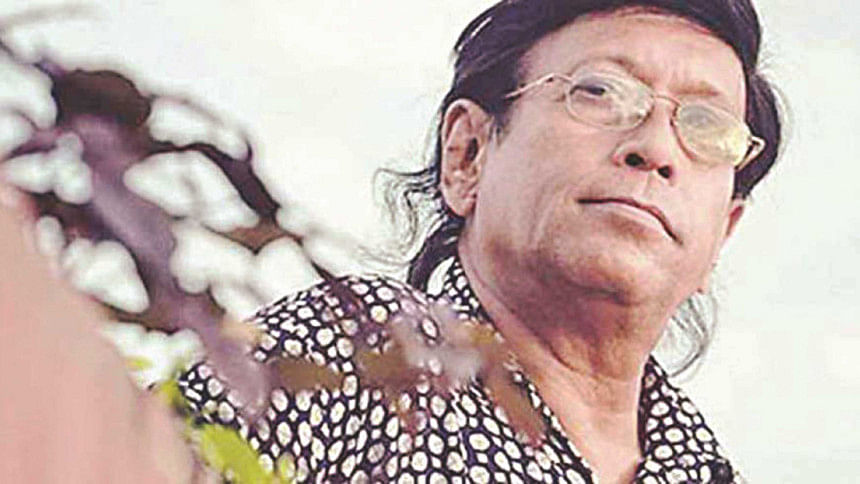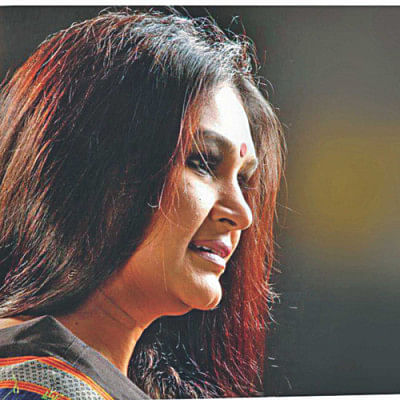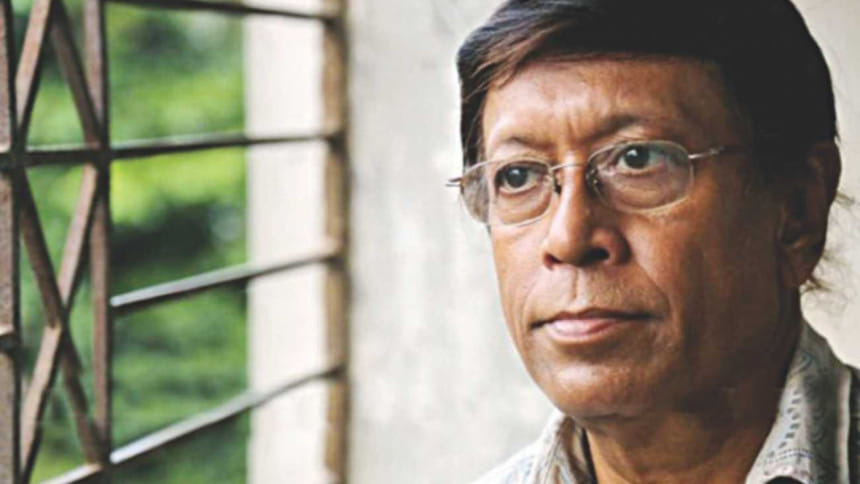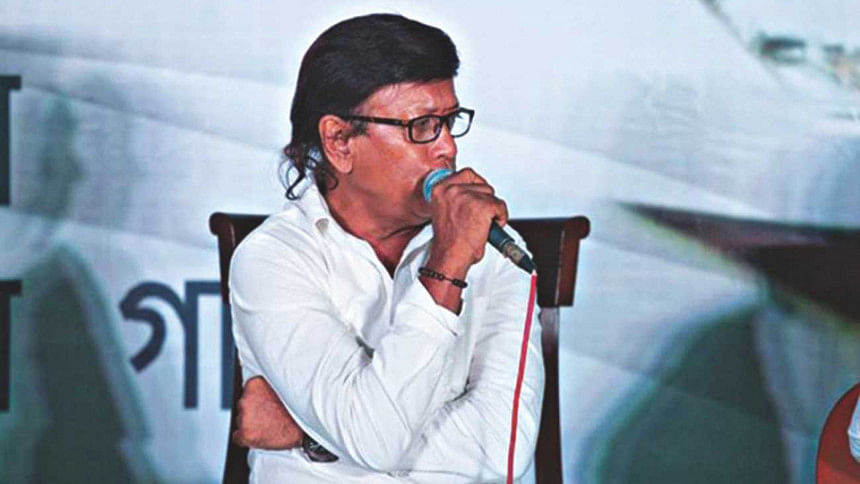Lucky Uncle


There are a few people in this world who inherently know that they are born with a gift. They know that they have to give the world a piece of themselves that would be remembered for thousands of years. It can be a new philosophy or a ground-breaking invention. It could also be a culmination of emotions through music itself. Even if our country is small in square feet, it has produced artists who have given immensely to the world, and undeniably, Lucky Akhand is one of them. We used to call him 'Lucky Chacha', as he was very close to our family and my father. I knew him since I was four years old. For those of us who sing and make a living out of it, Lucky Akhand will always be a role model.
Kawser Ahmed Chowdhury and Lucky Akhand were inseparable friends and an amazing musical duo, and we had the pleasure of seeing them weave their magic up close. Whatever Kawser uncle wrote, Lucky Chacha would immediately tune them. Many artists had constantly visited us, but my father really adored the two. They would be here on every special occasion. The way that Lucky Chacha played instruments was outstanding, and it really amazed me and Numa (Fahmida Nabi). I was actually more interested in playing rather than singing.

As fate would have it, I became a singer. Lucky Chacha started becoming really busy with his work, all his compositions started to resonate with the Bangladeshi audience like never before and he was at the peak of popularity. I had the opportunity to sing two of his songs at a television program, which were “Kobita Porar Prohor” and “Amay Dekona”. I picked them up, but as I went to record them I realized that I had lost my voice. I was so intimidated by the prospect that I started praying to the Almighty to somehow miraculously fix my voice. The shooting was in the next day, and these things were not as flexible as they are today.
When I did start singing, the miracle did occur and I did find my voice. I sang the two songs in one take and they instantly became tremendous hits. Later, Lucky Chacha would later redo the songs and sing them on his own, and they went on to become timeless classics. As an artist, Lucky Akhand was a perfectionist. He would strive and practice as many times as needed to achieve the best results possible. His chord sense was immaculate, and I still wonder to this day how he was able to incorporate such Western influence so seamlessly into his songs. He brought many genres to Bangladesh: if you listen to his songs very closely, you would be able to find amazing versatility in them.

He put intense effort in all his songs, which is unfortunately absent in many of today's compositions. Technology has taken over and made it infinitely easier to make music, but has also taken away the creativity and soul out of it. Artists like Lucky Akhand, Sheikh Sadi Khan, Nakib Khan, Jalal Ahmed, Azad Rahman, Ahmed Imtiaz Bulbul, Shotto Saha and many others have tended to get frustrated because of these. When I talked to Lucky Chacha before he passed away, he still had the urge to do music. That was all he ever wanted to do in his life. He told me that he thinks I should record renditions of his songs.
He told me to take care of his daughter, as he knew that he had to leave. What he left was a profound ideology of perfection in music.

 For all latest news, follow The Daily Star's Google News channel.
For all latest news, follow The Daily Star's Google News channel. 



Comments